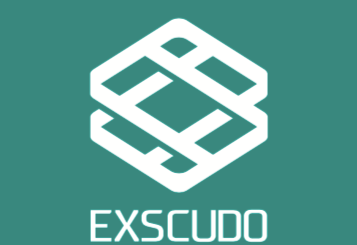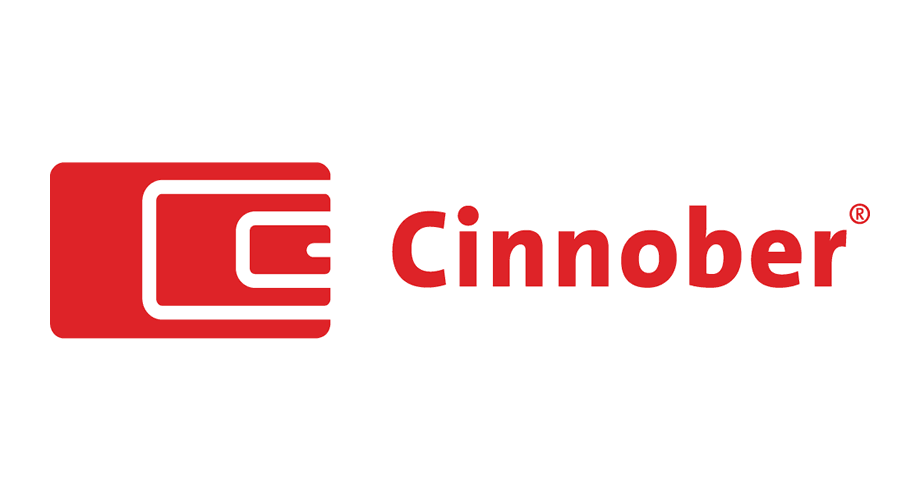Published
- 07:00 am

SaxoSelect, the fully digital and automated investment service that enables clients of Saxo Bank to invest in pre-selected portfolios, has today reported that its growth and risk-on managed portfolios have seen a 43% increase in net capital flows in Q2.
The two Equity Portfolios of global stocks, which utilize the strategies and research from world leading experts at Morningstar and most recently, Nasdaq, target strong growth over the medium term. In the second quarter, these portfolios saw a 166% increase in net capital inflows over first quarter flows.
Another group of portfolios, Trading Strategies, which are managed by experienced traders, carry higher risk and focus on alternative trading styles, have also enjoyed net capital inflows.
SaxoSelect also offers diversified Balanced Portfolios which utilise Blackrock’s research and are based on low cost ETFs for long term investments and savings.
Saxo has seen substantial net capital inflows across the complete SaxoSelect portfolio range, with total AUM up by 100% compared to the same period last year.
Kieran Phyo, Head of SaxoSelect, comments: “There has been a clear investment shift towards our global stock portfolios and we believe this is as a result of self-directed retail investors wanting to maintain the high returns they have enjoyed in recent years. Whilst retail capital generally flows into funds, we find that the self-direct investor prefers to buy directly into stocks, which we feel is partly due to much greater transparency.
“We’ve seen consistent inflows in SaxoSelect so far this year. This is because we have continued to collaborate with some of the best experts in the market in addition to offering unique trading strategies for more sophisticated investors. We are giving more and more clients access to actionable investment opportunities, and the trend that we are seeing is that self-directed investors are attracted to consistent, strong performance and accept the associated risk.
“Our SaxoSelect offering is underpinned by the belief that technology will profoundly change the asset management industry. Access to technology, demand for transparency and cost efficiency, as well as a focus on performance will change the way individuals manage their capital. We believe that our partner oriented facilitator model is more relevant than ever. We are actively having ongoing discussions with other potential partners to offer more portfolios.”
Last month SaxoSelect partnered with Nasdaq to offer a new portfolio, named Nasdaq DW Global Momentum, which provides a smart and cost-effective way to invest in a portfolio of 30-40 quality stocks based on the “relative strength” ranking formulated by Nasdaq Dorsey Wright (DW), a provider of investment research, tools and solutions that help investors manage complexity.
Related News
- 03:00 am

Today you can now use your smartphone to pay for parking in the P2 and P3 car parks at the Milan Bergamo Airport, operated by ViaMilano Parking, thanks to the Jiffy service provided by UBI Banca and SIA.
When you use Jiffy, cameras scan the license plate of your vehicle when you enter the car park and then you use your smartphone to pay when you leave.
The operation is quick and easy: first you activate the Jiffy service and then register on the SEA website (http://viamilanoparking.eu/en) and enter your vehicle license number which will be linked to your cell phone number.
Jiffy, which was launched by UBI Banca and SIA in 2014 for the transfer of money in real time between individuals, is now a digital alternative to payments in cash and it complements other more conventional instruments such as credit cards.
The advantages for customers
By using Jiffy for car parks operated by ViaMilano Parking, customers can make a payment in a few simple steps with the amount debited directly on their current accounts or on their payment cards with IBAN. There is therefore no need to go to the cash desk to make the payment, which is easy and immediate when you use your smartphone. Even though the transaction is fast and simple, it still takes place in a secure banking environment protected by access credentials. This initiative confirms ViaMilano Parking’s (a member of the SEA Group) commitment to providing its customers with simple solutions for the use of its services at airports.
Use of smartphones to make transactions is on the increase
The use of smartphones to make payments at airport car parks operated by ViaMilano Parking at Milan Bergamo Airport, the first to provide this payment option in Italy, forms part of a general trend towards cashless payments.
Volumes of credit and debit card transactions grew nationally over the two-year period 2016-2017 by approximately 50% (they stood €46 billion in 2017) and digital transactions via smartphone were up 60% to reach a total of €6.7 billion at the end of 2017.
“This innovative user experience developed with ViaMilano Parking" said Natascia Noveri, Marketing Manager at UBI Banca, "demonstrates the constant efforts made by our Bank to simplify customer payment experiences on all those occasions where a quick and convenient alternative to cash is preferable”.
“Thanks to its partnership with UBI Banca and SIA, ViaMilano Parking has again confirmed its ‘digital mission’ towards its Milan airport customers by offering the best and most innovative payment services. Jiffy efficiently, easily and rapidly satisfies the requirements of highly demanding customers such as those at airports where time is always a valuable commodity. With Jiffy you no longer need to queue up to pay for your parking: you just go in and come out with your smart phone”, said Giuseppe Zaffaroni, ViaMilano Parking Manager at SEA.
“The agreement with ViaMilano Parking and UBI Banca has allowed us to reach another important milestone as the Jiffy service has now evolved to include payments for parking at airports. It is a new development that exploits all the potential and the innovation inherent in mobile phones in terms of ease-of-use, convenience and speed, where the charge is paid in total security directly from your current account”, commented Marco Polissi, Jiffy Manager at SIA.
Related News

Graeme Dillane
Manager, Financial services at InterSystems
We talk about the ‘data revolution’ referring to the huge influx of data experienced over the past few years and the potential value it holds when analysed. see more
- 05:00 am

Are you ready for yet another amazing Blockchain Cruise? CoinsBank is proud to present the 3rd edition of the CoinsBank Blockchain Cruise that will be held from the 7th to 11th of September, 2018. The 4-day cruise out of Barcelona (Spain) and visiting Monaco (Monte Carlo) and Ibiza.
Just like the 2018 Asia Cruise, the Mediterranean cruise will bring together hundreds of industry professionals, renowned thought leaders, and blockchain enthusiasts from all over the world. The cruise will be a perfect opportunity to relax and at the same time learn about the latest trends in blockchain investing. The Blockchain Cruise is aimed at accelerating the growth of the blockchain community by facilitating the formation of meaningful relationships between its members. What’s better than having a one on one with a Bitcoin expert over some expensive champagne while looking at the endless waters of the Mediterranean? You guessed it; Nothing!
As Bloomberg commented:
"By the time their 1,020-foot-long ship pulled into Thailand on Wednesday, for an afternoon of bottomless drinks and crypto-focused talks on a sun-soaked private beach, Bitcoin had cratered to $10,000€!. But if anyone was fazed, they didn’t show it. The party rolled on as the sangria and Red Bull flowed, Bitcoin-themed rap music blared and drones filmed it all from above"
Sounds cool, but it’s not enough. So CoinsBank decided to be over heads and do this conference better.
The Ship and Venues
The cruise will be held in a state of the art 2500 capacity cruise ship that has everything you could ever want or need on a cruise ship. The entire cruise vessel reserved for the event only to ensure as many blockchain enthusiasts get the opportunity to enjoy this amazing adventure. The spacious rooms, gorgeous observation decks, indoor and outdoor swimming pools, magnificent food and entertainment options are designed to help you make the most of the cruise.
The Route
This is definitely the best part! The Mediterranean blockchain cruise shall depart from Barcelona to its first destination, Monte Carlo. Monte Carlo is one of the highlights of the cruise as it lets you experience the best of French and Italian cultures in the midst of pure luxury. The ship shall then head over to Ibiza for the whole day conference and crazy party at the paradise beach on this magnificent island. And at least, making the final trip back to beautiful Barcelona.
Each of these destinations is a world-class destination on its own and can be found in the Top 10 list of the best tourist destinations in the world. The cruise gives you the chance to experience the beauty of these places while listening to insightful cryptocurrencies discussions by industry leaders and experts.
The Speakers
Over 100 speakers with extensive knowledge about the world of crypto have been invited. The speakers consist of government representatives, blockchain advisers, top lawyers in the field, trading experts, investing and venture funds, powerful political figures, media representatives and bloggers.
Be ready to listen to top crypto experts, such as John McAfee, the former security software tycoon turned paid cryptocurrency hustler, Roger Ver, Bitcoin Cash CEO, Bobby Lee (Co-Founder of BTCC; Board Member of Bitcoin Foundation).
Also, you will see :
- Travis Wright - Co host of The Bad Crypto Podcast
- Tone Vays - Blockchain Consultant/Researcher/Derivatives Trader
- Taavi Roivas - MP, Former Prime Minister of Estonia
- Susan Poole - Founder of BlockBridge Advisory
- Jack Tatar - Founder and CEO of GEM Research Solutions
- Naeem Aslam - Columnist at Forbes
- Giacomo Zucco - Director at BHB.Network
- Bruce Porter - Chairman and CEO of GlobalBoos
- You will learn more about matters like emerging cryptocurrencies and their effect on the leading cryptocurrencies, the latest trends in cryptocurrencies, expert predictions on the future of blockchain, tools and techniques of trading your digital assets, among other interesting blockchain topics. The speakers’ combination of experience and expertise will help the guests see the picture from many angles and maintain candid discussions.
Entertainment
Besides all talks, business and conferences, the ship and the program of the whole trip are fully packed with entertainment options for the guests. World-famous DJs, celebrities, great party at the Pool Deck, 24 hours open bar reception, show time, dinners and as the cherry on top - unforgettable party at the beautiful Ibiza beach.
The CoinsBank 2018 Mediterranean blockchain cruise is a must-attend for all blockchain professionals, thought leaders, or enthusiasts who love traveling and mingling with like-minded individuals from all around the world.
CoinsBank is happy to invite everyone for the CoinsBank Blockchain Cruise Mediterranean, September 7-11, 2018.
Learn more about the event program, tickets prices, accommodation, and book a ticket on the official website: https://coinsbank.com/cruise-europe
Related News
- 06:00 am

Spotcap UK, lender to small and medium sized businesses, has appointed Andrew Caulfield as a senior underwriter. He joins the lender’s growing team, which now consist of 130 employees globally.
84% of areas in the UK have seen business lending from banks fall in the past year, as they continue to face difficulties in securing finance, according to data collected by debt adviser Hadrian’s Wall Capital. Non-bank lenders are therefore increasingly stepping in to fill this gap, providing UK businesses with much needed funding.
To continue Spotcap’s swift yet rigorous processing of loan applications, Spotcap has appointed Andrew Caulfield as a senior underwriter to its UK team. Andrew brings over six years of experience in risk management with RateSetter in the UK and AIB – Allied Irish Banks, to the role. At Spotcap, he will be responsible for assessing the credentials of companies looking for an unsecured business loan using Spotcap’s in-house developed machine learning technology.
Andrew joins a growing underwriting team, allowing Spotcap to cater to the increasing requests from UK businesses to provide unsecured loans without the need for a personal guarantee. Due to the lender’s rigorous underwriting process, strong team of experts and a straightforward application platform, Spotcap is able to quickly support the financing needs of these businesses.
Niels Turfboer, managing director at Spotcap, comments: “Andrew’s appointment highlights our emphasis on a swift yet high-quality loan process for both our partners and clients. His strong background will positively contribute to Spotcap’s reputation with the UK business community as an efficient lender with an experienced team.”
Andrew said of his appointment: “I am delighted to be part of this dynamic and driven team. Everyone here has a very strong work ethic and customer-centric perspective. Together we will continue to support the ever-growing number of businesses looking for financing that fits their needs.”
For further information, please visit: www.spotcap.co.uk.
Related News
- 08:00 am

To automate is human
Making tools that improve our lives is an impetus we can trace back to prehistoric times when we tamed the destructive force of fire and learned to fashion cutting blades from flint. In its 2017 report, “A Future That Works: Automation, Employment, and Productivity”, McKinsey Global Institute make a strong case for our continuing to innovate with technology to improve performance of our economies: “Automation of activities can enable businesses to improve performance, by reducing errors and improving quality and speed, and in some cases achieving outcomes that go beyond human capabilities… Based on our scenario modeling, we estimate automation could raise productivity growth globally by 0.8 to 1.4 percent annually”.
Process redesign and automation
According to Klaus Schwab, Founder and Executive Chairman of the World Economic Forum, the Fourth Industrial Revolution is “characterized by a fusion of technologies that is blurring the lines between the physical, digital, and biological spheres”: this requires companies to redesign processes in such a way that people collaborate with new technologies and hand over operational control where automation can substitute for their labour. And inversely, within a redesigned process, technology alerts humans to re-take control when their judgment and problem-solving skills are needed to complete a task.
Process redesign involves mapping out constituent activities and the flow of control from activity to activity, and then analysing each activity to determine the appropriate level of automation, if any. Activities characterised by David Autor, Professor of Economics at Massachusetts Institute of Technology, as involving rote repetition and adherence to rules are immediate candidates for automation, while abstract tasks that “require problem-solving capabilities, intuition, creativity, and persuasion” are best left to those in professional, technical, and managerial occupations.
Robotic Process Automation (RPA)
RPA is a technology of the Fourth Industrial Revolution “designed to reduce the burden of repetitive, simple tasks on employees”. The robotic component of RPA is software programmed to automate rule-based and highly structured tasks. RPA can be viewed as a control function spanning multiple systems, including databases and other information sources. RPA offers a clear interface, such that a process being automated appears as familiar and simple to operate by anyone already familiar with the work. The impact of RPA is to improve productivity, which is measured by comparing output per time unit achieved in the new process design with that achieved in the previous pattern of work.
Artificial Intelligence (AI)
According to Technopedia, “Artificial intelligence (AI) is an area of computer science that emphasizes the creation of intelligent machines that work and react like humans”. Critical components of AI include machine learning, involving computer algorithms that continually learn from experience in order to improve themselves, and natural language processing, which is the ability for computers to read and comprehend human language. AI has been adopted successfully in many areas of business, and use cases continue to emerge. In a recent study conducted by Boston Consulting Group and MIT Sloan Management Review, 84% of respondents say AI will enable them to obtain or sustain a competitive advantage.
Know Your Customer (KYC): a process ready for RPA and AI
Highly valued by the corporate world, digital technologies are also exploited by sophisticated criminals who operate internationally to move and launder money. Guided by international bodies such as the Financial Action Task Force (FATF), nations are enacting increasingly stringent regulations that guard their economies against financial crime. Assessing risk through due diligence in the form of KYC and keeping records of these checks form the foundation of these defences.
The UK’s Money Laundering Regulations 2017 (MLR2017) legislation extends the requirement to undertake risk-based KYC to firms beyond the finance sector to those providing professional services, including the legal and accounting sectors. Many of these firms rely on KYC processes that combine manual tasks with electronic communications, such as use of email attachments. Such processes make proving compliance to regulators difficult and they tend to be slow to complete and expensive to operate.
Assessing the KYC process for redesign and automation
Automating business processes creates opportunities for optimisation by assessing each activity’s potential for redesign based on current and emerging technologies. The activities involved in a general KYC process are reviewed in the table below:
Activity | Description | Potential for automation |
Define KYC policy | A KYC policy prescribes how a firm conducts KYC. Its definition includes the independent, reliable sources of information that the company will use in due diligence. A KYC policy is defined once and then applied multiple times as each new customer is considered for on-boarding. | Low - requires expertise and judgement of a senior compliance professional.
|
Request identifying documents from customer | For corporate customers this includes requests for articles of association / incorporation. | High - although certain sectors, for example legal and accounting firms, prefer face-to-face contact with prospective customers. |
Validate documents and formally identify customer | Check the validity of documents and ensure they match the entity requesting a business relationship. | High - involves validating electronic and physical security features of documents to establish proof of identity. |
Verify customer identity and beneficial owners | Regulations such as the UK’s MLR2017 instruct firms to use independent, reliable sources of information to investigate corporate structure, directors, shareholders and beneficial owner(s). | High - sources are available as digital information and published via APIs (application programming interfaces).
Due to the number of sources that need to be consulted, manual processes are time-consuming and prone to error. |
Assess risk and assign risk rating | New customers are typically scored as Low or High risk. | Medium - based on facts discovered in screening, risk ratings are automatically assigned. Regulated firms can be assigned a low rating while PEPs (politically exposed persons) are considered high risk. |
EDD (enhanced due diligence) screening | Customers assessed as high risk must be subject to ongoing monitoring. | High - sources of information on PEPs, sanctions lists and incidents of adverse media are digitised and published via APIs. |
Approve client for onboarding | Customers scored as Low risk, or those High risk but who satisfy EDD screening, are approved for onboarding. | Medium - penetrating customer due diligence creates sufficient knowledge of customers to allow automation. |
As shown in the table above, many activities of a typical KYC process are candidates for automation. This is consistent with findings published in the June 2017 edition of McKinsey Quarterly: “McKinsey Global Institute (MGI) research suggests that companies can automate at least 30 percent of the activities in about 60 percent of all occupations by using technologies available today”.
Redesigning and automating the KYC process with RPA and AI
In a redesigned and automated process, RPA and AI are applied to those activities identified above as having high potential for automation, and the new activity of “Codify KYC policy” is added. In the old process, KYC policies exist as business rules captured in paper or electronic documents which guide the work of KYC operations. In practice, this approach creates risk to the firm as the senior risk professionals responsible for creating policies can only be certain these are consistently applied through constant oversight: however, such policing proves impossible to maintain, degrading to staff morale and expensive.
In the new process, KYC policies defined by the firm’s senior risk professionals are expressed in a new form, one that is readily understood by KYC professionals and by regulators, but also codified as a set of instructions to program a software robot. As well as automating tasks, this approach ensures that a KYC policy can be defined once and consistently enforced for every new customer. Additionally, policies are easy to amend, so the firm can respond with agility as regulations change.
The work of Customer Due Diligence (CDD) requires a KYC analyst to download information from multiple sources, compare facts on companies, shareholders and beneficial owners gleaned from each source and build an understanding that is comprehensive, consistent and accurate. This can be difficult, as each new information source requires the analysts to reassess and re-document their understanding. In the new process, RPA automates this work by extracting information in real time from multiple sources via APIs, and then analyses and merges multiple instances of the same legal entity (people and companies) represented in different data sources. Automation of this activity alone lifts the productivity of KYC analysts as due diligence work that previously consumed many hours is completed in just minutes by a software robot.
KYC remediation
Evolving criminal threats continue to drive new, increasingly stringent regulations. Firms operating in regulated industries are obliged to promptly update the KYC profiles of all existing customers in line with new requirements. Until this remediation is complete, firms are exposed to regulatory risk as their records reflect outdated or incomplete information. For a time, and in a bid to simplify the remediation challenge, rather than spend the time and money needed for penetrating KYC across their customer book, financial institutions chose to de-risk entire industry sectors considered to be high-risk by wholesale termination of relationships. Regulators sought to curtail this trend, which had a particularly severe impact on the FinTech sector, where it threatened to stifle the innovation so promising to banks looking to improve processes and drive efficiency. When RPA is applied to KYC processes, remediation is simplified and its costs dramatically reduced as hundreds or thousands of existing customers can be checked against the requirements of the new regulation as a single task.
Summary of benefits
The Fourth Industrial Revolution has created the conditions for automation of much of the work of KYC. RPA and AI reduce costs and improves productivity of activities involving rote repetition and adherence to rules while freeing human experts to apply their experience and judgment to accelerate customer onboarding while protecting firms against the risk of being used by criminals intent on money laundering.
Related News
- 09:00 am

Exscudo becomes a game-changer: exchange-wallet integration makes personal finances accessible on-the-go and safe.
Widely famous fin-tech project Exscudo launched its core product, Exscudo Exchange. The release is fundamental for the whole Exscudo ecosystem deployment, consisting of the exchange itself, a messenger connected to it, cryptocurrency debit cards, b2b cashier service and other projects that can be easily integrated into it.
It is a remarkable event in the world of cryptocurrencies amid global cryptocurrency correction: the whole sector is going through the phase of sanitation, when only the strongest survive and others leave the market. In this context Excudo is a great example of how traditional business meets the world of cryptocurrencies and ICOs: having about $5,4 millions of investments, almost all of it was channelled to the development. The project was not followed by a lot of hype in the media — it is more than an exception in the world of blockchain, where it is more common to spend fortunes on marketing not development.
The exchange has been under development since 2014. For the last years Exscudo has built an exchange which is more similar to the traditional exchanges than other cryptocurrency exchanges. Among its main features are a fast trading core (according to the developers, the number of transactions processed on the exchange is comparable to NASDAQ’s trading operations volume), an elaborated API for third party trading software enabling high-frequency trading. However most importantly, traders can tether their exchange accounts to the mobile wallet via Exscudo’s corporate EON blockchain which saves users IDs of both the wallet and the exchange together. It can really be a game-changer — exchange-wallet integration powered by the blockchain layer makes personal finances accessible on-the-go and still as safe as in a cold storage. Users money can be both easily invested, converted or spent. Besides, it will allow mobile users which are not up to exchange trading still use the exchange’s core to convert their funds into desired cryptocurrency with minimal spreads and lowest fees.
This year Exscudo implements fiat trading with bank partnership, which will enable cryptocurrency trading and will give vast opportunities for business integration and tokenization. In the end, Exscudo have all the chances to become the service for all kinds of cryptocurrency enthusiasts: from casual users and private traders to ICO projects and financial institutions which are eager to invest in blockchain projects.
Related News
- 02:00 am

Cinnober, a global independent provider of exchange technology, and BitGo, the market leader in institutional-grade cryptocurrency security, announced today a collaboration to provide solutions to cryptocurrency exchanges. BitGo’s wallet solution will expand Cinnober’s trading and post-trade platform to provide an end-to-end secure, institutional-grade digital asset exchange solution.
Cinnober serves leading financial marketplaces globally with robust, multi-asset trading and clearing solutions. Through Irisium, Cinnober also provides a market surveillance platform to help safeguard market integrity. Through the collaboration with BitGo, Cinnober is consolidating its offering to cryptocurrency exchanges in need of a reliable and proven, high-performance trading solution to handle increasing market volumes, expectations from institutional investors and requirements from regulators. BitGo’s wallets and custodial services allow clients to store and transfer digital assets using industry standards for security and financial privacy. The solutions include security key management, multi-signature setups, setting of procedures and client-driven policies to ensure assets are held in a highly secure environment.
“This cooperation strengthens our offering to cryptocurrency exchanges,” says Veronica Augustsson, CEO of Cinnober. “The cryptocurrency market has grown significantly in the past few years, and we’ve seen exchanges in this segment struggle with capacity, scalability challenges and repeated outages. There is an opportunity for Cinnober to support this market with proven trading and surveillance solutions used by established financial markets, and, with BitGo’s secure and reliable wallet and custody services, we can offer a competitive solution with short time-to-market.”
“BitGo has a long history of successfully serving cryptocurrency exchanges, and we’re pleased to partner with Cinnober,” says Mike Belshe, CEO of BitGo. “This partnership brings together Cinnober’s proven success in delivering stability and scalability to handle increasing market volumes with our track record of institutional-grade security. This is an important step in driving the institutionalization of the cryptocurrency market because it provides customers with the tools and technology they need and ensures the market is ready for both institutional and retail investors.
“As interest in cryptocurrencies continues to grow and expand beyond the retail market, we will continue to support these exchanges with secure, scalable and flexible technology solutions that can help them manage their growing digital asset portfolios.”
Related News
- 04:00 am

New Frontier Group (NFG), a global leader in digital transformation, has partnered with Mambu, the leading SaaS banking engine, to extend its digital banking offering. The cloud-based model leverages NFG’s market-leading opti-channel digital banking solution, powered by Mambu’s SaaS banking engine, to create a fully online and automated digital banking offering which allows institutions to rapidly go to market and deliver business value.
NFG’s intelligently structured opti-channel digital banking platform with Smart Digital layer and powerful segmentation, allows financial institutions to fully digitize and automate their customer-facing processes. At the same time, it ensures completely personalized real-time services with immediate execution, and easy onboarding across any digital channel. Combined with the Mambu SaaS banking engine, NFG delivers applications and technology in one cloud-native API-enabled architecture with the ability to integrate complementary best-of-service solutions to address the individual needs of institutions.
“Customer expectations have changed, and institutions need to be flexible enough to respond quickly in an evolving market. Our partnership with Mambu is a natural fit that creates an integrated solution where the approach to agility, integration, modularity is aligned. It is a partnership that can change the landscape by giving institutions a simple, single solution. Together NFG and Mambu deliver a digital banking solution, which is quick to implement and easy to manage aimed at financial institutions supporting state of the art business models.” said Gregor Bierent, Managing Director, New Frontier Group.
“We can now deliver an end-to-end solution from online onboarding to loans administration, KYC and availability across Opti-channels, ranging from mobile to watches which are all managed through a single interface. Through the intuitive and configurable combined solution, institutions can offer their customers a rich and seamless experience,” said Bierent.
Commenting on the partnership, Ben Goldin, Mambu CTO/CPO said: “We are pleased to welcome NFG to our growing partner ecosystem. Their opti-channel solution will help our mutual clients to create intuitive and seamless experiences for digitally driven financial institutions.”
Related News
- 02:00 am

Kinesis, the creator of bullion-based currencies traded on the blockchain, has announced a liquidity partnership with Finemetal Asia, a specialist distributor of physical precious metals.
Finemetal Asia will be providing liquidity for the soon to be launched Kinesis currencies, which are based on allocated physical gold (KAU) and silver (KAG) and traded on the Kinesis Blockchain Exchange (KBE).
Finemetal Asia, in cooperation with Argor Heraeus, is based in Hong Kong and covers multiple Asian physical bullion trading locations. Among its customers are some of the largest jewellery chains and gold dealers in the world.
The strategic partnership will boost the liquidity available for users of the Kinesis currencies and enhance relevant real-time price assurance.
Ryan Case, Head of Sales & Trading at Kinesis, comments: ‘It is great to see this support coming from the physical bullion industry. We’re setting out to deliver an evolution of the precious metal market and implement a practical and efficient method for physical bullion to be used as a medium of exchange. As we do so, support from key liquidity partners such as Finemetal Asia greatly increases our standing.’
Pádraig J Seif, CEO of Finemetal Asia Ltd, adds: ‘We are excited by the opportunity that Kinesis presents and are ready to participate as gold and silver trading evolve into the digital era. As one of the initial members of the Allocated Bullion Exchange (ABX), we have seen its potential to increase our presence and two-way liquidity across multiple trading hubs. Similarly, we see great potential to add to our physical bullion liquidity by providing liquidity for the gold- and silver-based digital Kinesis currencies.’
Kinesis was founded by Allocated Bullion Exchange (ABX). ABX already has extensive infrastructure and fully operational technology for the trade and storage of physical bullion in 7 locations around the world.









